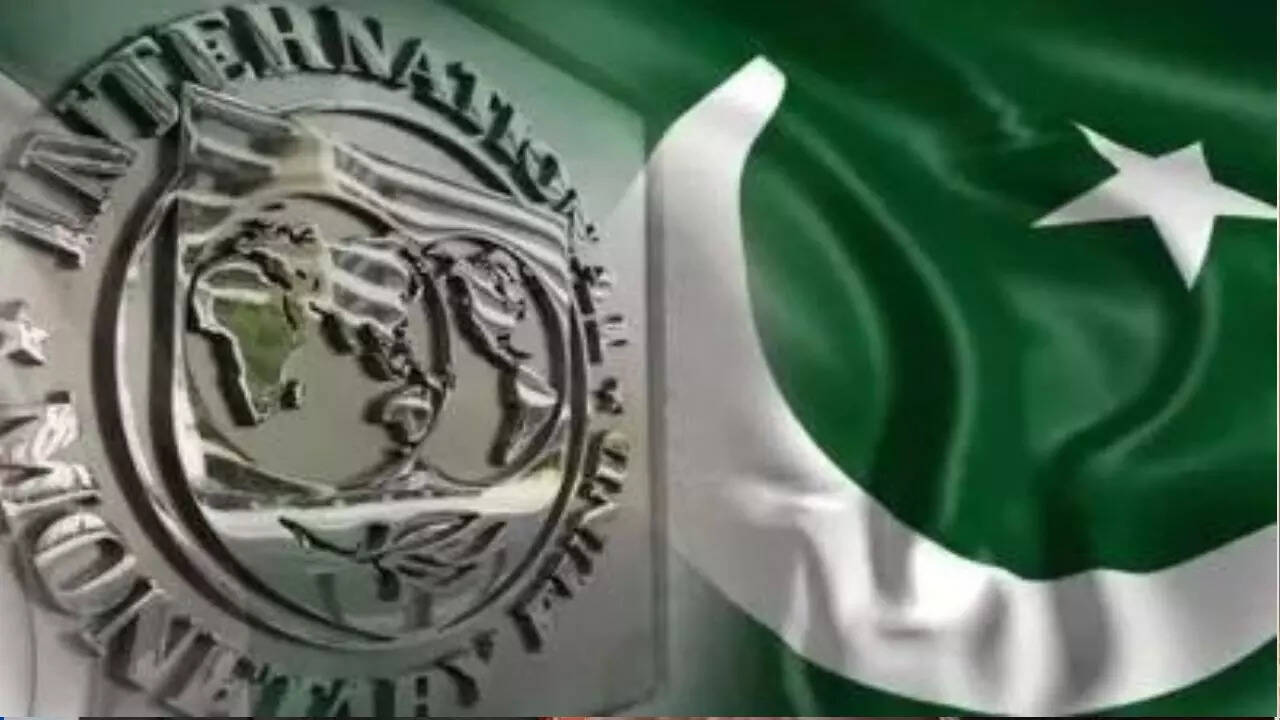
Among the IMF’s key new conditions is the demand for structural tax reform, including mandatory adoption of agriculture income tax laws by all provinces.
Photo : IANSHINDI
The International Monetary Fund (IMF) has added 11 new conditions to Pakistan’s ongoing bailout programme, raising the total to 50, while warning that rising military tensions with India could derail the country’s fiscal and reform trajectory. The IMF Staff-Level Report, released Saturday and cited by The Express Tribune, outlines critical preconditions for the next tranche of financial assistance, including the parliamentary passage of a Rs 17.6 trillion federal budget by June 2025, sweeping energy sector adjustments, and removal of import restrictions on used cars. The IMF also voiced concern that “rising tensions between India and Pakistan, if sustained or deteriorate further, could heighten risks to the fiscal, external and reform goals of the programme.”
The geopolitical flashpoint referenced involves a series of retaliatory strikes between India and Pakistan following the 22 April Pahalgam terror attack, which killed 26 civilians. In response, India launched Operation Sindoor on 7 May, targeting terror infrastructure across the border. Pakistan responded with attempted strikes on Indian military bases between 8–10 May, culminating in a ceasefire understanding reached on 10 May. Despite the ongoing volatility, market reactions have been relatively contained, with the IMF noting only “moderate widening” of bond spreads and a largely stable stock market.
Among the IMF’s key new conditions is the demand for structural tax reform, including mandatory adoption of agriculture income tax laws by all provinces. These must be supported by operational tax platforms and compliance plans, with a June deadline. Furthermore, Islamabad is required to publicly release a governance action plan based on the IMF’s Governance Diagnostic Assessment, and draft a post-2027 financial sector strategy. In energy, the government must notify annual electricity tariff rebasing by 1 July and implement semi-annual gas price adjustments by 15 February 2026. Legislation must also be passed to remove the Rs 3.21 per unit cap on the debt service surcharge—a move the IMF argues penalises honest consumers for inefficiencies in the power sector.
The IMF has also called for the phasing out of fiscal incentives for Special Technology Zones and industrial parks by 2035, with a concrete report due by end-2025. In a nod to consumer interest, the IMF instructed the government to table legislation by July to allow commercial imports of used vehicles up to five years old, relaxing the current three-year limit. The IMF’s increasingly interventionist stance comes amid Pakistan’s attempts to stabilise a fragile economy burdened by high debt, a depreciating rupee, and chronic power shortages. Defence spending has also spiked, with the proposed Rs 2.5 trillion military allocation exceeding IMF estimates by 18 per cent—an increase attributed to the recent border hostilities.